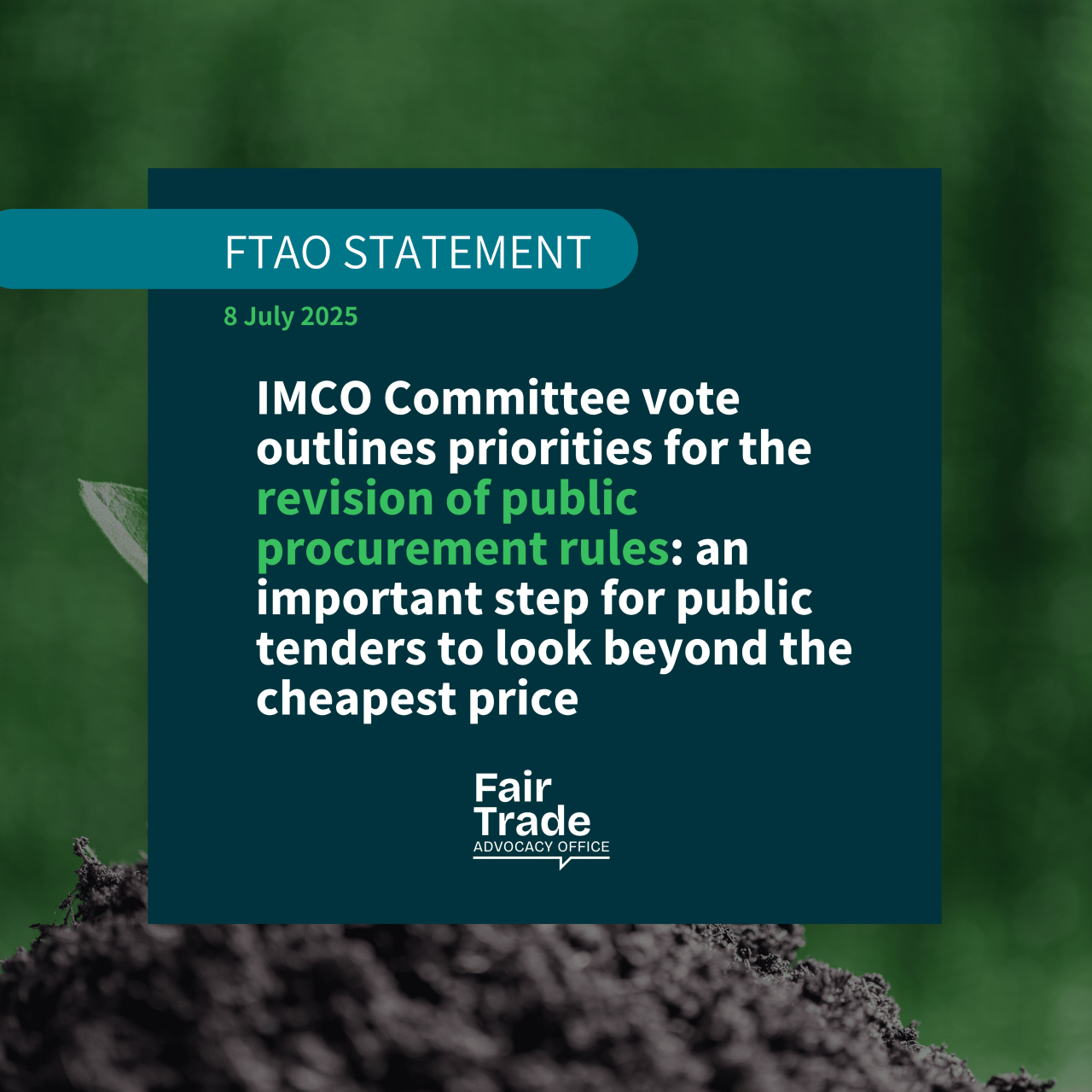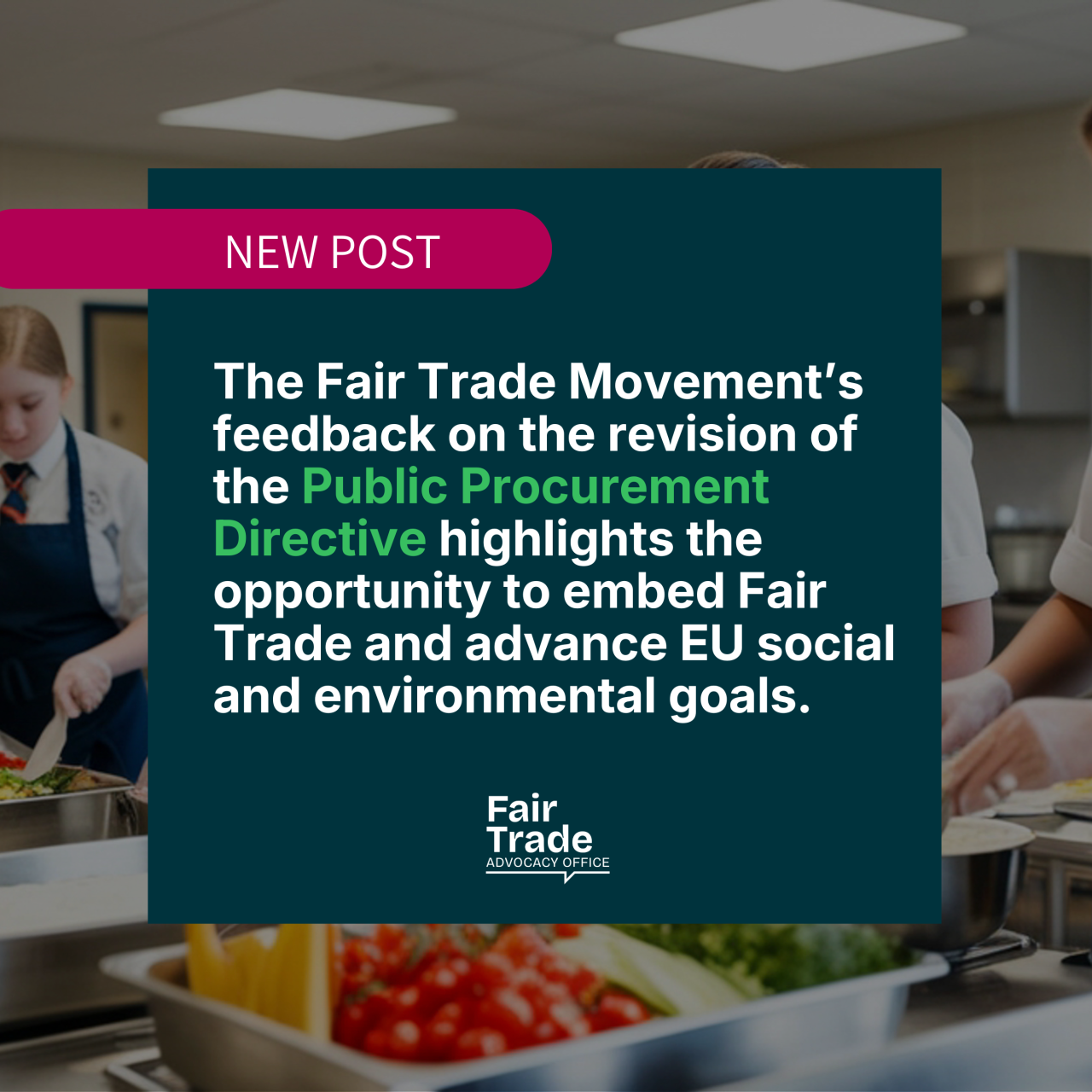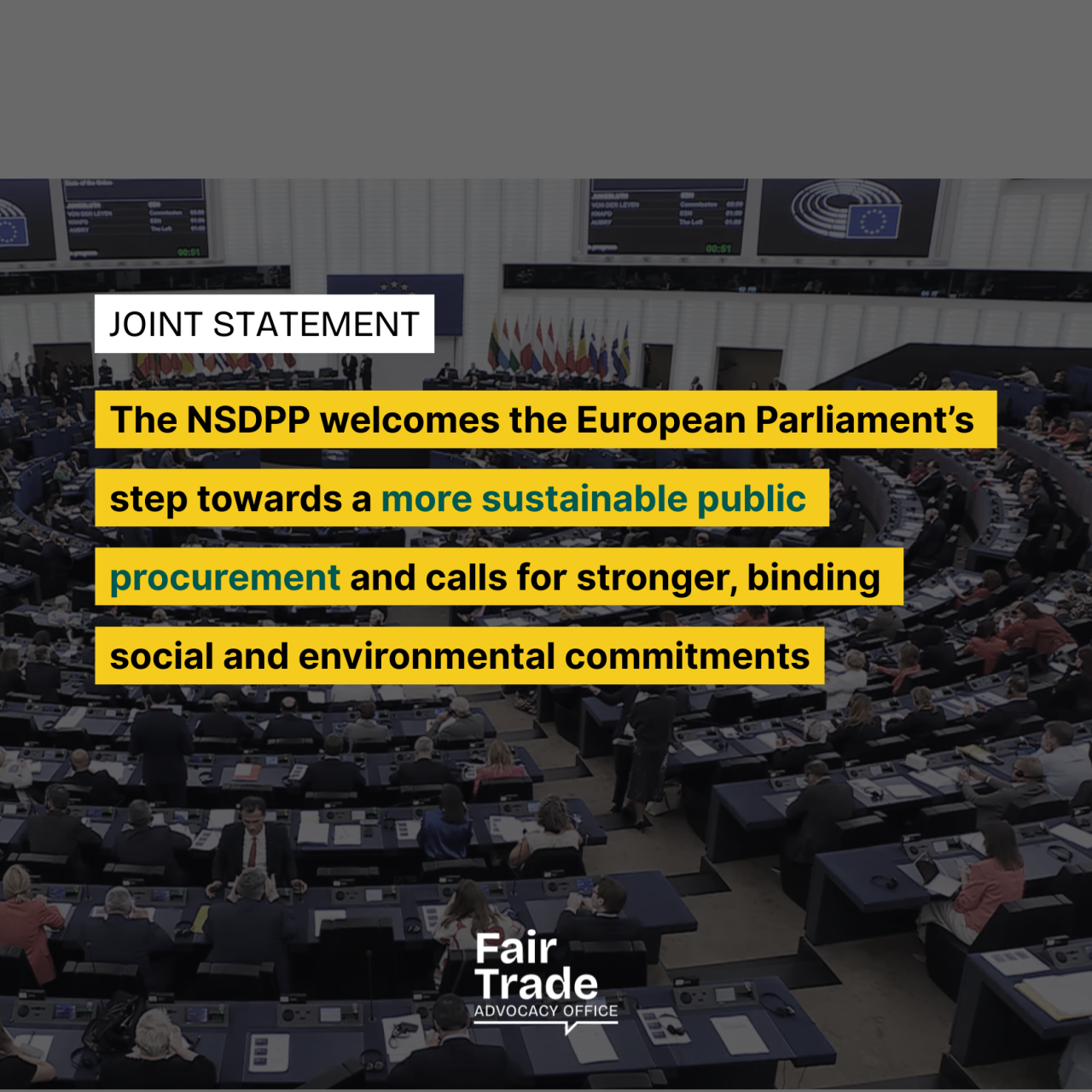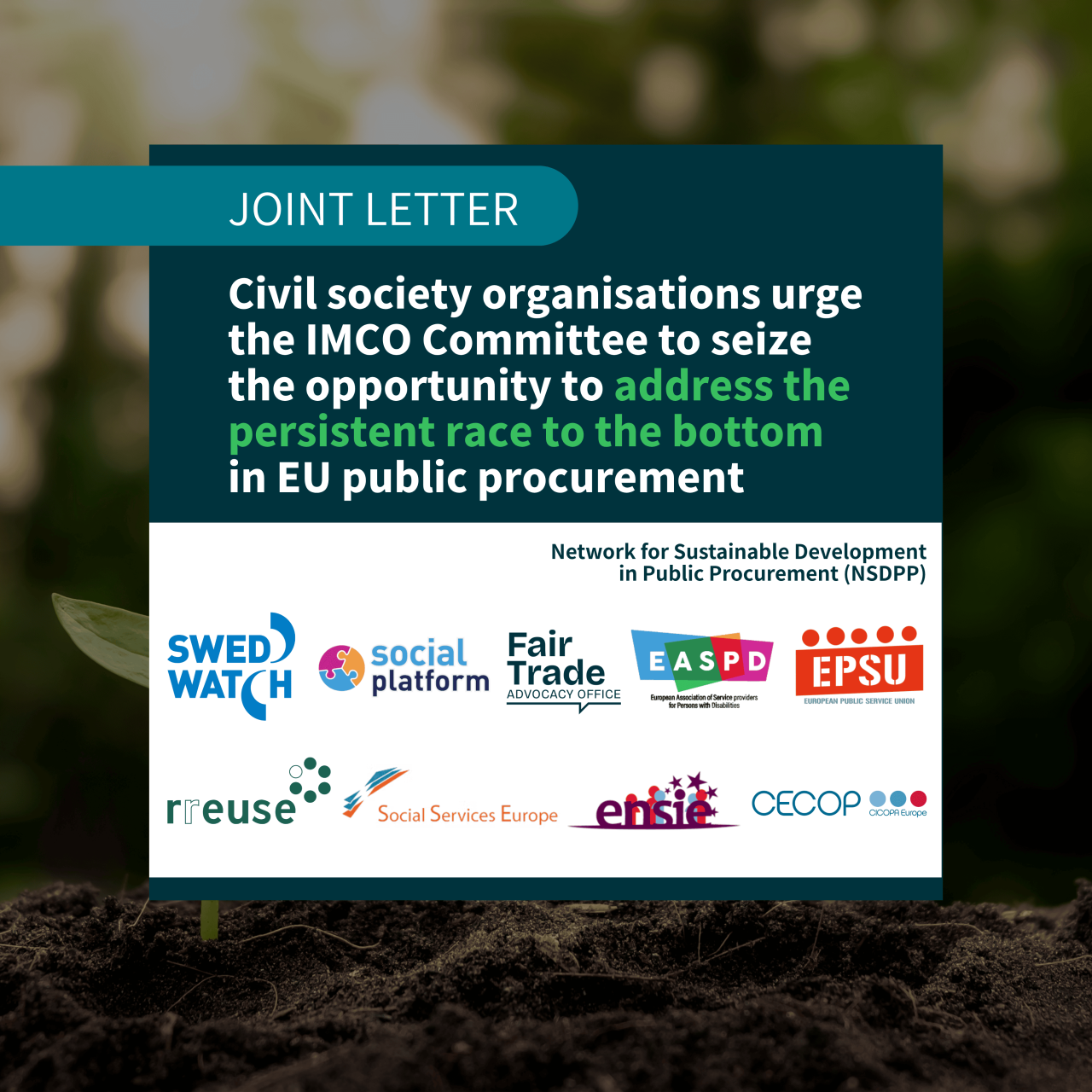Vote in IMCO Committee: an important step for public tenders to look beyond the cheapest price

In particular, the FTAO recognises the MEPs' commitment to acknowledge the need for training for contracting authorities by explaining the rules and clarifying sufficiently the use of the non-price criteria, including for the “most economically advantageous tender” (MEAT) criteria, to offer legal certainty to public authorities. This is a long-standing demand of the Fair Trade Movement and other social economy actors, marking a clear step forward in ensuring that EU public funds are used to incentivise the use of qualitative criteria such as environmental and social considerations in awarding public contracts
Furthermore, the inclusion of specific compromised amendments to enable small and medium-sized enterprises (SMEs) and social economy actors to compete effectively in public tenders is a long-overdue recognition of their public value and contribution to our economy. The FTAO has been advocating for their meaningful inclusion as an essential step to building a procurement system that is both resilient and rooted in the values of social justice and environmental responsibility.
It is particularly promising that the initiative also recognises the importance of measures such as the division of contracts into lots and the use of reserved contracts, which are proven tools to enhance access for these actors and diversify the supplier base. It is also worth noting the inclusion of references to trustworthy and sustainable labels and certifications, as well as the need to train contracting authorities to make better use of non-price criteria, both of which are crucial for aligning procurement practices with sustainability and fairness goals.
Finally, ahead of the vote in plenary expected to take place in September, the FTAO urges Members of the European Parliament to ensure that any efforts to streamline procurement rules, do not compromise Europe’s long-term social and environmental objectives.
The Fair Trade Advocacy Office has been working closely with public authorities and civil society organisations through the Network for Sustainable Development in Public Procurement, the EU Food Policy Coalition, and the International Working Group for Ethical Public Procurement. These platforms bring together procurement professionals, trade unions, civil society organisations and advocates from across Europe to promote socially responsible public procurement. Yesterday’s IMCO vote reflects the momentum we are collectively building toward a fairer and more inclusive approach to how public money is spent.
However, it is important to underline the need for greater ambition from the European Commission in its forthcoming proposals. The INI report still relies too heavily on voluntary guidelines, which have repeatedly proven insufficient. Furthermore, the inclusion of an ambiguous “Buy European” focus risks undermining efforts to advance global social and environmental standards.
Any future reforms must be firmly grounded in internationally recognised standards and contribute meaningfully to increasing transparency and the protection of human rights throughout global supply chains, in line with the Sustainable Development Goals (SDGs).
Read the Fair Trade Movement’s recommendations for the review of the EU’s 2014/24 Public Procurement Directive here.
Get in touch
For more information about the FTAO’s work on Public Procurement, please reach out to our Senior Policy and Project Officer, Paola Plaku at plaku@fairtrade-advocacy.org
More From The Workstream

The Fair Trade Movement’s feedback on the revision of the Public Procurement Directives

The NSDPP welcomes the European Parliament’s step towards a more sustainable public procurement and calls for stronger, binding social and environmental commitments

Civil society organisations urge the IMCO Committee to seize the opportunity to address the persistent race to the bottom in EU public procurement
